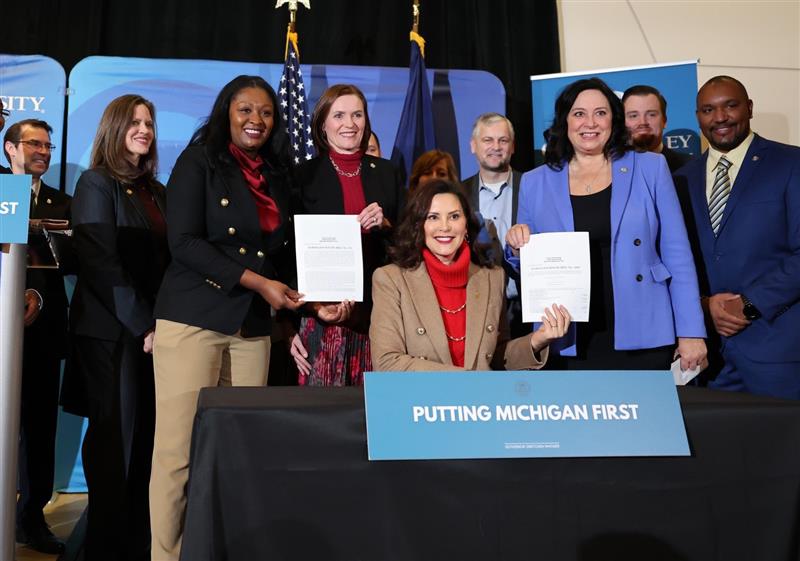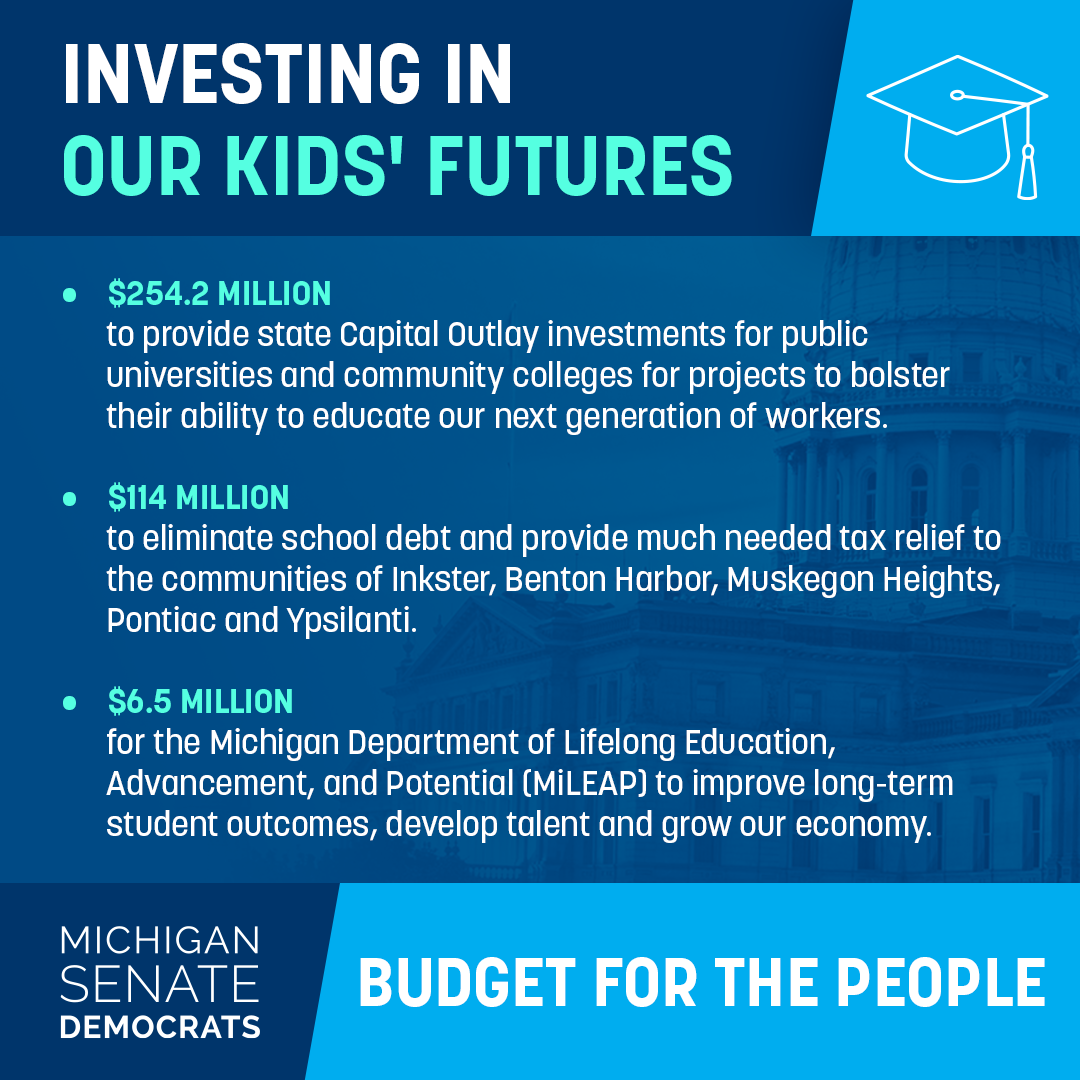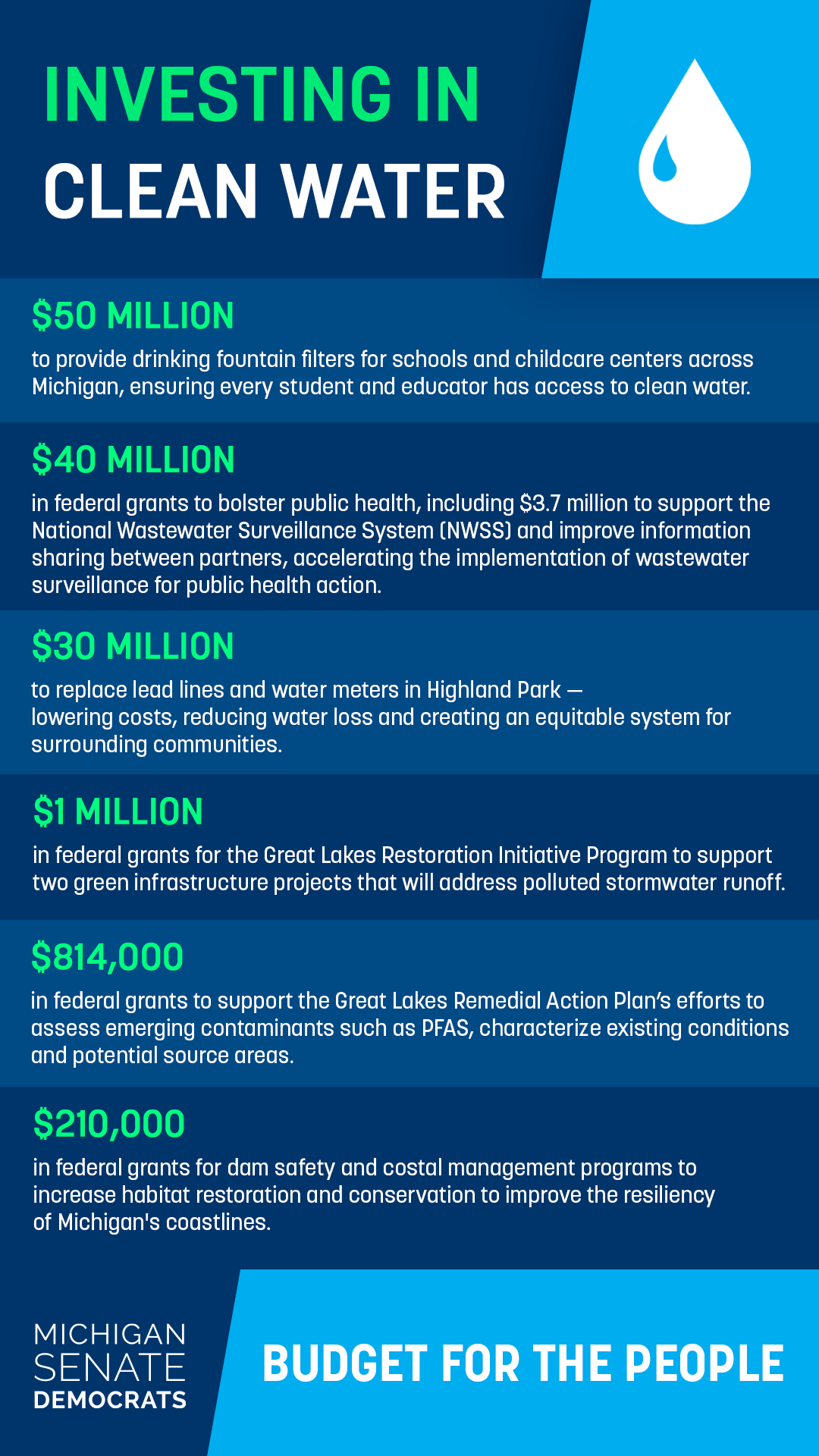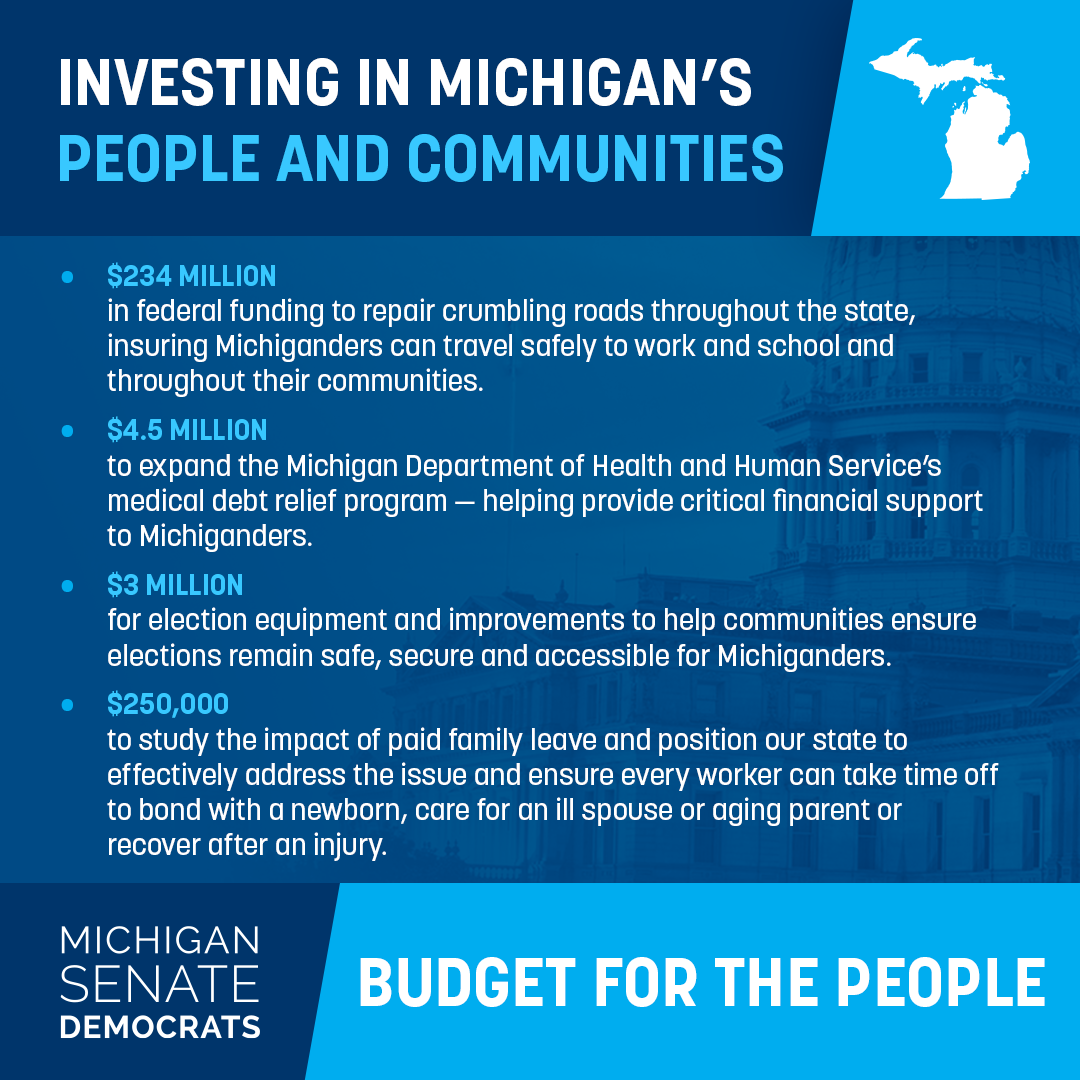Key budget supplemental legislation helps address the needs of communities across Michigan
In July 2023, Governor Gretchen Whitmer signed the state budget for Fiscal Year 2024, marking the first time in forty years Michigan has had a budget making vital investments in the people that make up the fabric of our state — families, kids, workers, business owners, seniors, veterans and more. This transformational budget took effect October 1, delivering real investments to lower costs for Michiganders, expand access to affordable housing, fix crumbling infrastructure and a whole lot more.

On December 18, Senate Majority Leader Winnie Brinks (D-Grand Rapids), Senate Appropriations Chair Sarah Anthony (D-Lansing) and Sen. Sean McCann (D-Kalamazoo) join Governor Gretchen Whitmer at Grand Valley State University to celebrate the signing of the budget supplemental.
To help close the books on the 2023 fiscal year and position Michigan for future success, the Legislature passed a budget supplemental — House Bill 4292 and Senate Bill 174. This fiscally responsible supplemental will help communities across Michigan invest in students — to ensure students have access to clean drinking water at school; put more money into classrooms; and fund critical projects at public universities and community colleges to build a pipeline for more high-skilled talent, among other priorities.
Sen. Sarah Anthony (D-Lansing) speaks on the Senate floor urging her colleagues to vote in favor of the budget supplemental.
Investments in Michigan’s Students
Senate Bill 174 makes significant investments to eliminate school debt and carry out projects to benefit students, educators and schools throughout Michigan — helping provide our future generation with the resources they need to thrive.
Included in the budget is $114 million dedicated to erasing school debt that has been shouldered by the communities — and people — of Inkster, Benton Harbor, Muskegon Heights, Pontiac and Ypsilanti whose school districts were affected by financial emergencies, dissolution or consolidation. This debt forgiveness will provide much-needed tax relief to the residents of these communities, as well as put more money into classrooms so schools can focus on what truly matters: student success.

Sen. Dayna Polehanki (D-Livonia) joins Inkster residents, Mayor Byron H. Nolen and Pastor Velma Overman at a community event to "burn the debt” from the dissolved Inkster School District.
“Ten years since the state dissolved their district, Inkster residents — and my constituents — are still paying exorbitant taxes on the remaining debt for a school district that their kids cannot attend,” said Sen. Dayna Polehanki (D-Livonia), who secured $12.12 million to forgive Inkster School District’s debt. “My constituents in Inkster need this relief. They deserve this relief, and today, I am proud to help deliver it.”
The budget supplemental also invests in Michigan’s public universities and community colleges through capital outlay projects that help prepare students for jobs of the future in key industries like engineering, advanced manufacturing and mobility. From supporting the University of Michigan-Flint’s efforts to expand their Innovation and Technology Complex to providing funding for Kalamazoo Valley Community College to establish a center for virtual learning and digital careers — this supplemental will help shore up our talent pipeline and cement Michigan’s place in the new technology-driven world.
“As we enter into a new economy driven by technology and innovation, it’s vitally important we make the investments necessary for our kids to succeed in it,” said Sen. John Cherry (D-Flint). “The funding secured for colleges and universities will allow them to meet the moment and provide students with the unique opportunity to learn about — and develop — the cutting-edge technologies that will define the next era.”

Investments in Clean Water
Everyone deserves access to safe drinking water, which is why Senate Democrats secured over $122 million for much-needed investments in clean water.
Included in House Bill 4292 is funding to implement “Filter First” legislation and provide water filters to schools across Michigan, ensuring every student and educator can fill their water bottle or go to the water fountain knowing it is safe. Additionally, the supplemental leverages federal grant money to address issues facing the Great Lakes, such as polluted stormwater runoff, PFAS and other contaminants.

Another major win for clean water is the securement of $30 million to replace lead lines and water meters in Highland Park — delivering on the historic settlement that is set to end the 10-year dispute between communities in the Great Lakes Water Authority (GLWA) service area. The settlement will help the community move forward, lower utility costs and implement a fairer system for the region.
“It is a good day for Highland Park residents and everyone within the GLWA system,” said Sen. Stephanie Chang (D-Detroit). “Access to water is critical for every Michigander. By providing critical state funding to fix Highland Park’s water infrastructure, we are following through on the agreement reached and are setting up the whole system for a stronger, more fiscally sustainable future. Highland Park residents have long called for a resolution to this issue, and we are very proud that the state has played a key role in leading to this solution.”
Investments in People and Communities
To officially close the books on 2023, the budget supplemental includes various investments to address the needs of Michiganders and communities across the state.
Among the targeted investments is $234 million dedicated to repairing deteriorating roads so Michigan residents are able to commute to work, drive their kids to school and navigate their communities safely. Other investments include funding to provide financial support to Michiganders with medical debt, expand access to the voting booth, bolster election security and more.

As the budget begins to be implemented, Senate Democrats look forward to seeing the impact this funding will have on the everyday lives of Michiganders, and they remain committed to delivering another round of fiscally responsible, yet transformational investments in the New Year.
Read more from the Michigan Senate Democrats at SenateDems.com/press.
